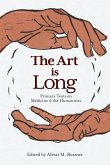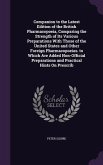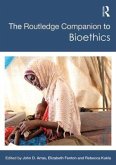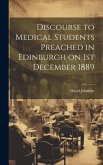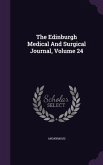*APPROVED* 'The Medical Humanities have been at the cutting edge of interdisciplinary research in the late twentieth century. But where should it go now? This volume demonstrates why the future lies with developing an exhilarating, robust and provocative critical medical humanities, and shows us how it can be done.' Joanna Bourke, Birkbeck, University of London A field-defining collection of original critical engagements at the intersection of the biomedical sciences, arts, humanities and social sciences In this landmark Companion, expert contributors from around the world map out the field of the critical medical humanities. This is the first volume to introduce comprehensively the ways in which interdisciplinary thinking across the humanities and social sciences might contribute to, critique and develop medical understanding of the human individually and collectively. The thirty-six newly commissioned chapters range widely within and across disciplinary fields, always alert to the intersections between medicine, as broadly defined, and critical thinking. Each chapter offers suggestions for further reading on the issues raised, and each section concludes with an Afterword, written by a leading critic, outlining future possibilities for cutting-edge work in this area. Topics covered in this volume include: the affective body, biomedicine, blindness, breath, disability, early modern medical practice, fatness, the genome, language, madness, narrative, race, systems biology, performance, the postcolonial, public health, touch, twins, voice and wonder. Together the chapters generate a body of new knowledge and make a decisive intervention into how health, medicine and clinical care might address questions of individual, subjective and embodied experience. Anne Whitehead is a Senior Lecturer in Modern and Contemporary Literature at Newcastle University. Angela Woods is a Senior Lecturer in Medical Humanities and Deputy Director at the Centre for Medical Humanities, Durham University. Cover image: Bullet Proof Breath (detail), 2001, Christine Borland, in collaboration with The Fabric Workshop and Museum, Philadelphia. Glass and spider silk © Christine Borland. Cover design: [EUP logo] edinburghuniversitypress.com ISBN 978-1-4744-0004-6 Barcode
Hinweis: Dieser Artikel kann nur an eine deutsche Lieferadresse ausgeliefert werden.
Hinweis: Dieser Artikel kann nur an eine deutsche Lieferadresse ausgeliefert werden.

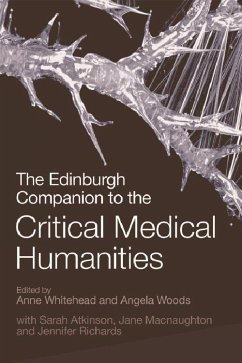
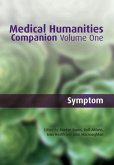
![List of the Graduates in Medicine in the University of Edinburgh From MDCCV. to MDCCCLXVI [electronic Resource] List of the Graduates in Medicine in the University of Edinburgh From MDCCV. to MDCCCLXVI [electronic Resource]](https://bilder.buecher.de/produkte/64/64528/64528865m.jpg)
